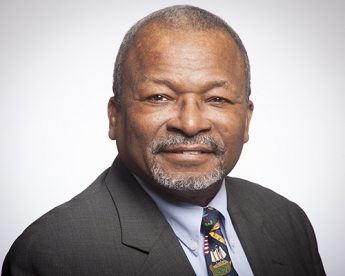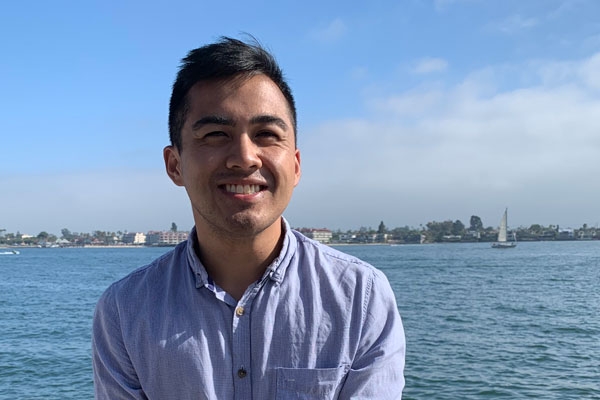"Opiates are especially manipulative because you get outside of your consciousness. Fears you didn't know you had, suddenly vanish. Though the experience of a drug is a romantic and nostalgic feeling, addiction is not. It's ugly and selfish because it is so bodily. It is both metaphorical and biological; it is hunger for emotion and chemical alteration. It is almost impossible to explain to someone who has never done an opiate."
—M: several years clean, Brooklyn, N.Y. via Alternet.org
There isn't one specific type of person who is prone to misusing prescription drugs. Those who abuse their prescriptions come from all backgrounds and from all income levels. They live in the house next door, in the penthouse, in the row house apartments, in your own home.
And, despite the utility of opioids for some kinds of pain management, the misuse of prescription drugs overshadows the medical use of these medications. According to the Center for Behavioral Health Statistics and Quality's National Survey on Drug Use and Health in 2014, "almost 16 million women in the United States admitted to the nonmedical use of prescription pain relievers at some point in their lives; for men, this number rose to 20 million" (Substance Abuse and Mental Health Services Administration, Center for Behavioral Health Statistics and Quality, National Survey on Drug Use and Health, 2013 and 2014. Chart 1.54A, 2015). And the drugs' transition from therapeutic use to nontherapeutic use has increasingly become a public health issue. We've seen opioid abuse in the international spotlight with the relatively recent deaths of Prince, Philip Seymour Hoffman and Cory Monteith. But it's not just celebrities who are afflicted. In 2014, there were almost 19,000 deaths due to prescription opioids, compared to 10,574 deaths due to heroin according to the Centers for Disease Control and Prevention (CDC/NCHS, National Vital Statistics System, Mortality File).

"Anyone is at risk for developing a problem with prescription drugs, either through the inadequate or inappropriate treatment of a condition that might benefit from those drugs or from the nontherapeutic use of those drugs for their psychoactive properties," says H. Westley Clark, J.D., M.D., dean's executive professor of public health at Santa Clara University and a former director of the Substance Abuse and Mental Health Services Administration (SAMHSA), Center for Substance Abuse Treatment in Rockville, Md.
Dr. Clark believes that we need to gain an understanding of this surging public health problem, its link with opioid overdoses, its association with pain management and its association with premature deaths. And that it is "misleading, faulty and potentially quite dangerous" to assume that someone could be more vulnerable to this type of problem than another person, that it "presupposes that those who are 'not vulnerable' can use prescription drugs nontherapeutically."
On September 15, Dr. Clark will speak at UC Berkeley Extension about what the community of substance abuse counselors and the general public—nationally and locally—can do to stem this rising tide. We spoke with Dr. Clark to get a glimpse into his thoughts on substance abuse and the passing of the Comprehensive Addiction and Recovery Act of 2016 (CARA).

In 2014, 467,000 adolescents were current nonmedical users of pain relievers, with 168,000 having an addiction to prescription pain relievers.
Source: Substance Abuse and Mental Health Services Administration, Center for Behavioral Health Statistics and Quality, 2015
As the dean's executive professor of public health at Santa Clara University, the former director of SAMHSA's Center for Substance Abuse Treatment, a clinical provider to veterans suffering from post-traumatic stress disorder (PTSD) and substance use disorders, as well as a teacher of those interested in addressing prevention, treatment and recovery associated with substance use, you obviously have been touched by the rise in prescription drug abuse misuse and deaths. What motivated you to pursue your line of work?
I have long recognized that public policy has placed greater emphasis on criminalizing drug users than on providing adequate prevention, treatment and recovery intervention, despite the adverse public health and community health impact. Working with individuals who have experienced substance use disorders, listening to their family members and collaborating with community service providers has given me a unique perspective on the need for rational policies and adequate funding to address the spectrum of issues associated with substance use.
"What we need to look at is legalization, regulation, quality control; making rehab centers far more accessible; treating addiction like the terrible disease it is, and not some crime for which being incarcerated is punishment."
—Howard: 10 years clean, Los Angeles via Alternet.org
In March 2016, President Barack Obama spoke on the panel at the National Rx Drug Abuse and Heroin Summit in Atlanta. On July 22, the president signed CARA into law. Could you tell me how important this law is for addiction counselors, especially with the rise in prescription drug abuse and if it meets what is needed?
CARA purports to address key components of a comprehensive response to addiction:
- prevention and education
- overdose-reversal law enforcement
- treatment and recovery
- medication-assisted treatment
- services for veterans and for pregnant and postpartum women
- opioid therapy and pain management
It is important to realize that key provisions of CARA are unfunded. Thus, it does not provide any real new resources for its major components, including for those seeking treatment. CARA also focuses principally on drug issues, minimizing alcohol-related harms. Nevertheless, CARA represents a high-level acknowledgment that a more sustained and substantial approach to drug use needs to be undertaken.
CARA approves a public education campaign to address the risk of abuse of prescription opioids if such drugs are not taken as prescribed, but it requires the use of existing programs and activities. The law authorizes—but does not fund—$5 million to enhance community-based coalitions under the Drug-Free Communities Act. And while it permits the Attorney General, U.S. Department of Health and Human Services (HHS), and Office of National Drug Control Policy (ONDCP) to coordinate with specified entities in expanding or making available disposal sites for unwanted prescription medication, it only does so with existing funds.
One of the things addictions counselors and those working with healthcare providers should note is that under CARA, nurse practitioners and physician assistants are now allowed to dispense drugs—such as buprenorphine—to those who are opioid-dependent to battle opioid addiction. Counselors will need to work closely with those providing medication-assisted treatments to their clients.
Community Solutions to the Rising Tide of Prescription Opioid Misuse is being presented at a very timely and unfortunate time, with Prince's death in April being linked to prescription drug abuse. Does his death help in the fight ("If it can happen to Prince, it can happen to me/my family") or hinder it because of an "If he couldn't beat it, how can I?" mentality?
Although the lecture won't focus on celebrities per se, it will address the issue of pain management. To the extent that anyone—celebrity or not—is in pain, using appropriate and diverse strategies for pain management is of critical importance in order to win this battle. Relying on opioids to the exclusion of other strategies can be problematic. Nevertheless, the use of opioid euphoria for nontherapeutic purposes, as well as the consequences of such abuse, will be discussed.
The lecture will provide insight into the issue of pain management—both acute and chronic—that is linked to prescription opioid use and misuse and address the concerns about physician prescribing and community diversion of opioids. In addition, I plan to discuss the growing problem of heroin substitution for prescription opioids, as well as overdose reversal using naloxone.



